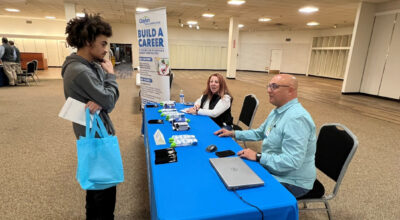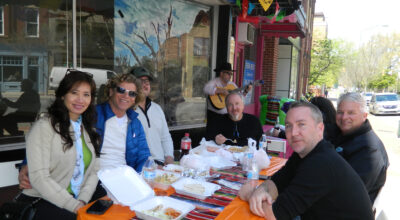FCC ruling shows how Internet has become vital to society
Published 12:00 am Sunday, March 1, 2015
The number for my desk phone, for some unknown reason, is listed in several places, such as yellowpages.com, as the main number for the Salisbury Post.
This inconvenient fact results in me answering a lot of phone calls from people with a variety of questions about the paper. And sometimes people call me trying to reach the post office — in case you need to call them, the number for Salisbury’s post office is 704-636-7821. I think the problem has something to do with the word “post.”
Anyway, I try to help in whatever way I can when people call.
Thursday, a woman called trying to reach someone in the circulation department. She didn’t get her paper that day due to the weather, and she wanted to let someone know that she had gone to the gas station and bought a paper and didn’t need a duplicate delivered the next day.
In the midst of our conversation, she let me know that she reads the newspaper every day and that she doesn’t use a “stupid computer” to go to our website to read the news.
That’s fine; nothing wrong with getting your news the traditional way.
But there a lot — probably safe to say the vast majority — of Americans who do use a computer, or their smartphone, to keep up with what’s going on in the world.
That’s what made the Federal Communications Commission’s rulings on Thursday regarding municipal broadband and what’s referred to as “net neutrality” such a hot topic.
The FCC voted to pre-empt state laws restricting municipal broadband and also voted to regulate broadband Internet as a public utility — treating the Internet like a necessary service that people need and want.
The FCC, in a 3-2 vote along party lines, approved new rules meant to ensure that companies providing Internet access, such as Time Warner and Comcast, can’t block content or websites and that they can’t start offering “pay-to-play” fast lanes for media and Internet companies who can afford to foot the bill while offering slower service to others.
FCC Chairman Tom Wheeler said Internet access is “too important to let broadband providers be the ones making the rules.”
Think about it this way: Most people have very little choice, if any, when it comes to choosing an Internet provider. In most places it’s one or two or three companies providing Internet access. And as the Internet becomes more intertwined with everyday life, especially as an educational resource, companies shouldn’t be able to use their control over Internet access as a financial weapon — picking winners and losers.
Kent Winrich, Salisbury’s director of Fibrant, has said the Internet will become like water in the future: people will need it to survive and function in society.
That concept is why the city took on the task of building a municipal broadband network. City Council decided that access to high-speed Internet was crucial to the city’s economic and social future. And since private companies wouldn’t build a fiber-optic network for the city, council chose to have the city do it.
With the FCC voting to preempt state laws that regulate (limit) the expansion of municipal broadband networks, like North Carolina’s law, Salisbury is now free to expand Fibrant outside the city limits, according to interim City Manager John Sofley.
But it’s likely lawsuits against the FCC’s rulings will put a hold on things.
There are people that want to sign up for Fibrant, Sofley has said, but can’t because they’re outside the city limits. The FCC’s ruling changes that.
If the Internet really is as essential to our daily lives as some people say it is, shouldn’t people and businesses be able to get the best service they can? And if private companies won’t offer it, what’s wrong with a big city or small town providing the service?
The issue may be just a bunch of hot air for people who don’t use “stupid computers.” But for those who do, it’s a big deal.
And as each day passes, using the Internet looks more like the traditional way of finding out what’s going on in the world around us.




